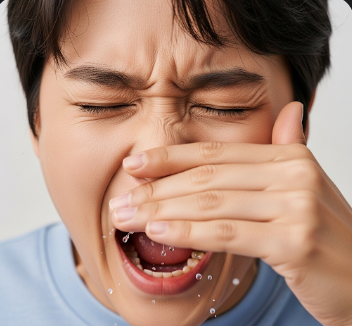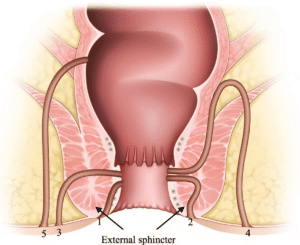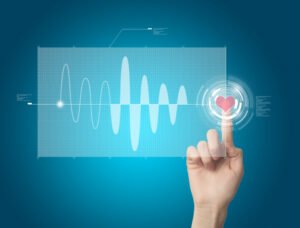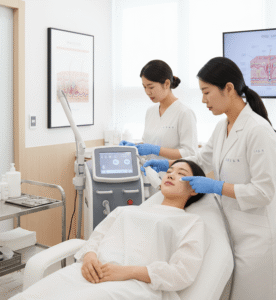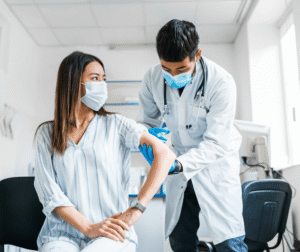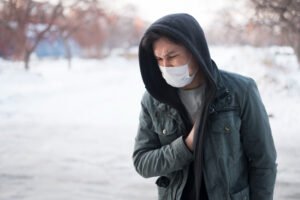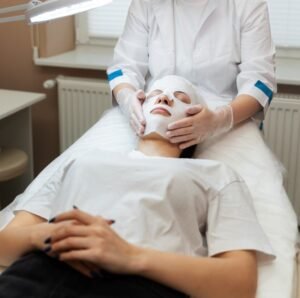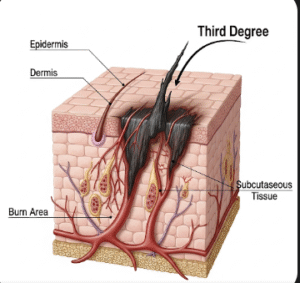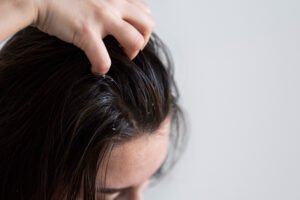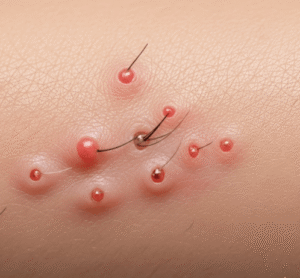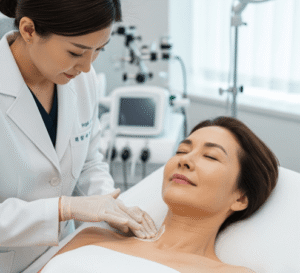➤ Overview
Sneezing is a sudden, involuntary expulsion of air from the nose and mouth, often triggered by irritation in the nasal passages. It is a common reflex that helps clear irritants such as dust, pollen, smoke, or microbes from the nasal cavity.
In South Korea, sneezing is generally managed by allergists, ENT specialists, and primary care physicians, especially when frequent sneezing affects daily life. Understanding the triggers, underlying causes, and treatment options is essential to prevent discomfort, infections, and complications.
➤ Key Facts
→ Sneezing is a protective reflex of the respiratory system.
→ It can be acute or chronic, depending on triggers.
→ Common triggers include allergens, infections, irritants, or sudden exposure to light (photic sneeze reflex).
→ Frequent sneezing may indicate allergic rhinitis, sinus infections, or respiratory illnesses.
→ In Korea, treatment combines medication, lifestyle adjustments, and environmental control.
→ Sneezing is contagious when caused by viral infections, spreading droplets to others.
→ Proper management improves comfort, quality of life, and reduces secondary complications.
➤ What is Sneezing?
Sneezing is an involuntary protective reflex of the respiratory system. It occurs when the nasal mucosa is irritated by foreign particles, allergens, or inflammation, triggering the sneeze reflex arc.
→ Air is expelled forcefully, often at 100–160 km/h, clearing irritants.
→ Nasal and sinus nerve endings detect irritants and signal the brainstem to initiate the reflex.
→ Sneezing may be isolated or accompanied by other symptoms such as runny nose, congestion, or watery eyes.
Korean specialists evaluate triggering factors and differentiate between benign sneezing, allergy-related sneezing, and disease-related sneezing.
➤ What Symptoms are Related to Sneezing?
Sneezing may present with additional symptoms, depending on the underlying cause:
→ Runny or congested nose.
→ Watery or itchy eyes (common in allergic sneezing).
→ Itchy throat or palate.
→ Coughing or mild throat irritation.
→ Red or irritated nasal passages.
→ Postnasal drip, causing throat discomfort.
→ Fatigue or malaise in chronic conditions.
→ In severe cases, fever, headache, or facial pressure if infection is present.
➤ What Causes / Possible Causes?
Sneezing can be triggered by a variety of physiological, environmental, and pathological factors:
→ Allergens – Pollen, dust mites, mold, pet dander.
→ Viral infections – Common cold, influenza, or other respiratory viruses.
→ Bacterial infections – Sinusitis or upper respiratory infections.
→ Environmental irritants – Smoke, strong odors, pollution, or chemicals.
→ Photic sneeze reflex – Sneezing triggered by sudden exposure to bright light.
→ Nasal structural issues – Deviated septum or nasal polyps.
→ Medications or irritants – Certain drugs, sprays, or perfumes.
→ Chronic conditions – Allergic rhinitis, vasomotor rhinitis, or non-allergic nasal inflammation.
➤ When Should I See My Doctor?
Medical evaluation is necessary if sneezing is persistent, severe, or accompanied by concerning symptoms:
→ Sneezing more than 10–15 times per hour or daily for weeks.
→ Severe nasal congestion or sinus pain.
→ Recurrent infections or fever.
→ Allergic symptoms not relieved by over-the-counter medications.
→ Sneezing accompanied by shortness of breath, wheezing, or chest tightness.
→ Suspected underlying systemic conditions such as immune disorders or chronic sinusitis.
→ Any sudden onset of profuse sneezing with eye or skin reactions that affect daily life.
➤ Care and Treatment
Treatment depends on underlying cause, severity, and trigger management:
→ Allergen avoidance – Minimizing exposure to dust, pollen, or pets.
→ Nasal irrigation – Saline sprays or rinses to clear irritants.
→ Antihistamines – Oral or nasal to reduce allergic responses.
→ Decongestants – Short-term relief for nasal congestion.
→ Topical corticosteroids – For chronic allergic or inflammatory causes.
→ Lifestyle adjustments – Regular cleaning, air purifiers, and humidity control.
→ Treating infections – Antiviral or antibiotic therapy when indicated.
→ Immunotherapy – Allergy shots or drops for long-term desensitization in Korea.
➤ Treatment Options in Korea
South Korea offers comprehensive management of sneezing, particularly when it is chronic or allergy-related:
Diagnosis in Korea
→ Detailed ENT and allergy evaluation to identify triggers.
→ Skin prick tests or blood tests to detect specific allergens.
→ Nasal endoscopy to assess structural abnormalities or chronic inflammation.
Medical Treatments in Korea
→ Prescription antihistamines, corticosteroid sprays, or decongestants.
→ Targeted therapy for sinusitis or bacterial infections.
→ Allergy immunotherapy for long-term relief.
Advanced Therapies in Korea
→ Laser or minimally invasive nasal procedures for structural problems.
→ Combination therapies integrating medical, environmental, and lifestyle interventions.
→ Korean clinics emphasize personalized care plans for optimal outcomes.
Rehabilitation & Support in Korea
→ Education on trigger management and environmental control.
→ Regular follow-ups to monitor symptom improvement.
→ Supportive care to improve quality of life, sleep, and daily functioning.

